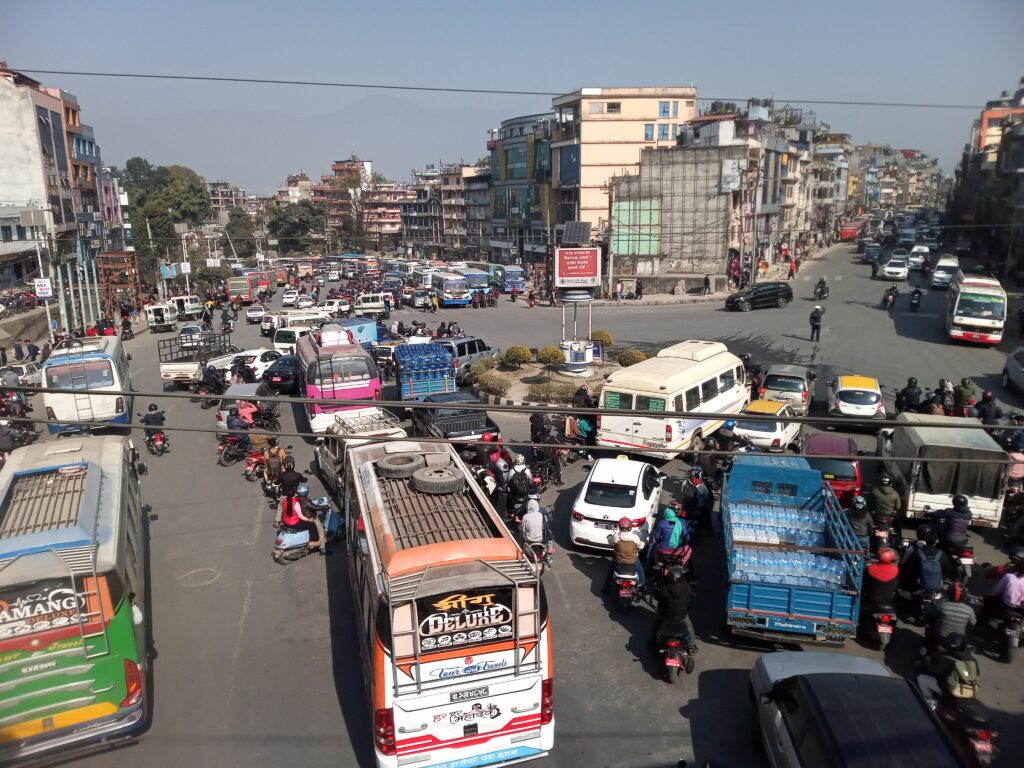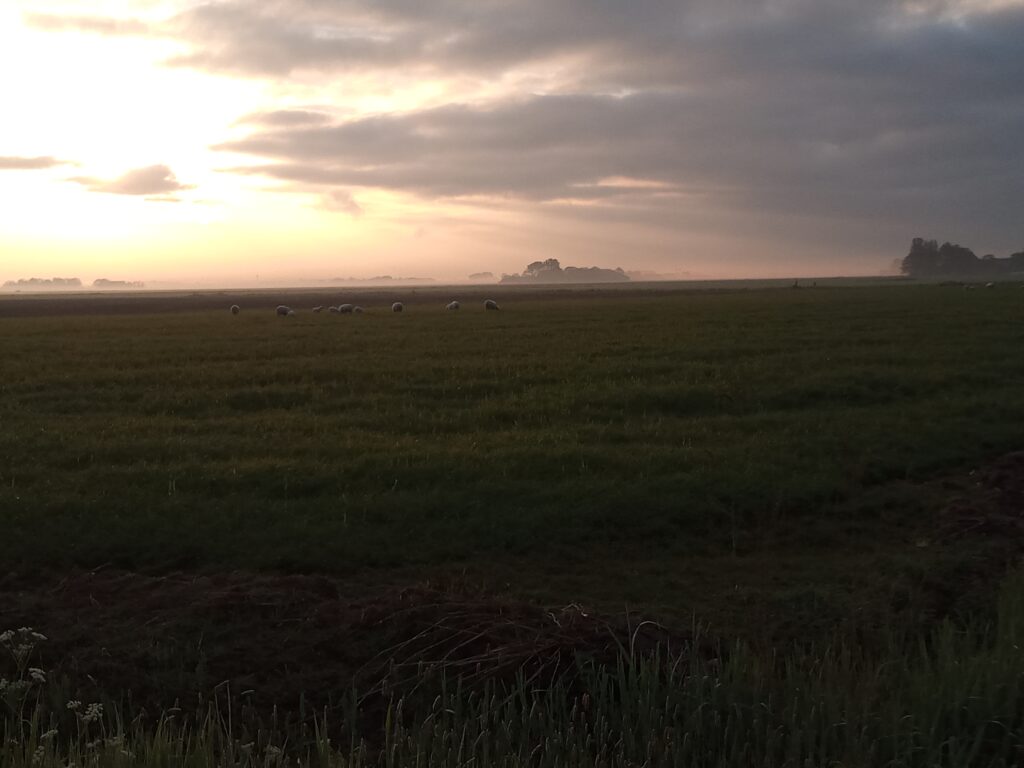The world is moving fast. Or perhaps more accurately, we are. If you ask someone these days how they’re doing, there is a good chance the answer will be something like: “I am very busy.” Or, maybe at its best: “I am doing well, but I am very busy.” Busy by itself seems neither good nor bad. However, are we sure we are busy with the right things?
Anxiously On the Move
Standing on the rooftop of a hotel in Taichung (Taiwan) sometime in November 2024, I was looking at the traffic in front of me. Cars, buses, vans, trucks, and all the various roads and crossovers showed a constant movement. About a month later, pausing for a moment on a metal bridge for pedestrians at a crossroads in Kathmandu (Nepal), the types of vehicles, and so forth, were somewhat different. Yet, the movement was the same.

In both cases, I was reminded of a visit to New York in 2019, where I also saw how we seem to move without pause as if we feel there is no time to lose. While that might actually be true, I am not sure we have that thought for the right reasons. Nor whether the activity that follows this view and the anxiety or fear that often accompanies it, is meaningful. We might be running fast, literally and metaphorically, but what if we are just going around in circles?
What Are We Looking For?
At the beginning of the second chapter of the Ornament of Precious Liberation, the great master Gampopa that it is not only extremely difficult to obtain a precious human life that allows us to make our activity beneficial. It is also very easily destroyed. Considering the rarity, fragility, and real purpose, we should make sure whatever we do is meaningful.
Most, if not all of us, would probably wholeheartedly agree. It is probably part of why many feel there is no time for sleep and why there is the constant movement, both outer (in the sense of traffic) and inner (in the form of anxiety, restlessness).
However, if we pause for a moment and investigate the reasons behind us going here and there, or constantly engaging with the digital world without going somewhere, we might discover it doesn’t really take us anywhere meaningful. It is like scrolling through our newsfeed or endlessly swiping new stories on our social media. Other than adding our likes or wishing we receive the likes of others, nothing truly substantial seems accomplished. This pursuit of validation is oftentimes nothing but a distraction from what truly matters.
The inner fear of missing out and ongoing search for self-assurance from the outside that seems to drive most of what we do, may itself very well be a sign that it does not offer us the contentment or happiness we are looking for. Gampopa urges us to question whether our actions align with our deepest potential and aspirations.
Small Things Make a Great Difference
As a little kid growing up in the countryside in the southwest of the province Fryslân in The Netherlands, I was often told to study well and work diligently. My maternal grandparents reminded all their children and grandchildren frequently that finding ourselves in a safe environment, with enough food, a comfortable place to sleep, and so forth, was far from guaranteed and not to be taken for granted.
Their advice, echoed by my own parents, was not just to work hard. It was also about doing something that would contribute to a better life and society. Being a force for good, so to speak. While many people think that requires great political power, fame, or the like, we were always told how true meaning and positive change could be found and accomplished in the small things of life.

The last time I visited The Netherlands, I had the fortune to stay with my mother and stepfather for some time and meet some of my uncles and aunts again. On the one hand, my appearance as a novice of the buddhadharma is somewhat peculiar perhaps to them and others in the area I grew up. On the other hand, I always find it easy to engage in conversations about our lives in this world of the 21st century. Just like the discussions my family had at my grandparent’s home every Sunday. I may have been too young to understand all they said at the time, but I am confident it has been and still is something that informs my life and decisions.

Tirelessly Seeking a Haven From the Ocean of Saṃsāra
All our lives may have differences on the surface. Yet, my entire family would agree: We all simply seek happiness and don’t want to suffer. Although from the perspective of the buddhadharma, there is an even deeper purpose, the complete freedom and the end of suffering in every being, given the state of our global society, striving to accomplish the well-being of ourselves and others in this life alone would already make such a great difference.
In later chapters, Gampopa will remind us why we shouldn’t be content with worldly happiness because, eventually, it still leads to suffering (saṃsāra). From the very start, he pointed out we really should be striving to attain unsurpassable enlightenment. We should consider this human life as a boat to find a haven from the ocean of samsara. Therefore, he quotes Shantideva saying in the Guide to the Bodhisattva Way of Life:
“Making use of this vessel of able human life,
get free from the mighty river of suffering.
Since such a craft will be hard to come across in the future,
don’t fall into confusion: there is no time for sleep!
– Shantideva, quoted from Gampopa’s Ornament of Precious Liberation, translated by Ken Holmes, edited by Thupten Jinpa
On the Move to Serve Everyone
If this is the reason why we are on the move all the time and feel we can’t really sleep that much, that would be a sign of having the highest human ability and making the best use of our lives, as pointed out by Gampopa in his second chapter on precious human existence.
At the same time, I noticed the following thought: ‘Imagine we would all follow the advice of my grandparents: appreciate what we have in life, work diligently for the welfare of ourselves and others, at least not causing any harm. How wonderful would that be!’
We may need to pause, and also sleep from time to time, to see this and sincerely feel what is worth living. Yet, once we do, we make sure all our movements and actions, fast or slow, small or big, are not just a waste of our time but a great service to ourselves, and everyone. Whatever we would be busy with, would be a cause for positive change in the world.
Leave a Reply